A version of this article originally appeared in the Winter 2016 issue of Western Pennsylvania History.
In powerful and profound ways, the archival records of human rights advocates stand as essential evidence of their efforts to affect positive change in society. The letters, notes, reports, photographs, and news articles are all a part of a path into the heart and history of a movement. The History Center’s Detre Library & Archives holds one such collection, generated by a small but dedicated group of local advocates. The records of the Allegheny County Chapter of the Pennsylvania Association for Retarded Children (ACC-PARC) vividly capture a watershed moment in Western Pennsylvania’s Disability Advocacy Movement.
First formed in 1951, the ACC-PARC (today known as Arc of Greater Pittsburgh) was a local grassroots organization primarily comprised of the parents of people with disabilities. The ACC-PARC spearheaded initiatives and services to aid and advocate for people with intellectual disabilities and their families. These activities included educational and vocational training, diagnostic clinic support, community centers, ongoing research and advocacy, counseling, and recreational activities.
In the early 1970s, a core group of ACC-PARC members began to investigate and expose human rights injustices suffered by people with disabilities who were living in state-administered and state-funded institutions. Working closely with ACC-PARC staff members Bob Nelkin and Chuck Peters, they began to make both announced and unannounced visits to the care facilities. Among the core visitation team members were parent advocates Barbara Sistik, Jean Isherwood, and Ginny Thornburgh, wife of soon-to-be Pennsylvania Governor Dick Thornburgh. Reacting to leads and reports made by internal medical staff and the parents of residents, ACC-PARC visitation team members investigated the residents’ living conditions as well as the facility’s staff, sanitary conditions, disciplinary practices, and treatment strategies. Throughout the course of their visits, the teams discovered and documented evidence of institutions employing the use of strait jackets, restraints, isolation rooms, cages, and cattle prods that violated the residents’ human rights.
During this time, ACC-PARC members diligently advocated for the rights of residents at multiple institutions in the region, including the Western State School and Hospital (WSSH) and the Polk Center. In the case of the WSSH, a Joint Visitation Team was formed of ACC-PARC members and representatives from the WSSH Parent’s Group and Board of Trustees. Among the team’s chief responsibilities was to document and critically analyze the disturbing effects of the institution’s overcrowded conditions and chronic understaffing. Visitation team members found that these two troubling factors contributed to negligence, malnourishment, inferior medical care, a lack of programming, and mistreatment of those people living at WSSH. The visitation team members further discovered a disturbing correlation between these deficiencies and recent deaths of WSSH residents. Following each visit, team members compiled and maintained formalized notes and reports that documented their observations. These documentary records and the alarming evidence contained within them became the crucial foundation upon which the ACC-PARC would build public awareness in order to advocate for change.
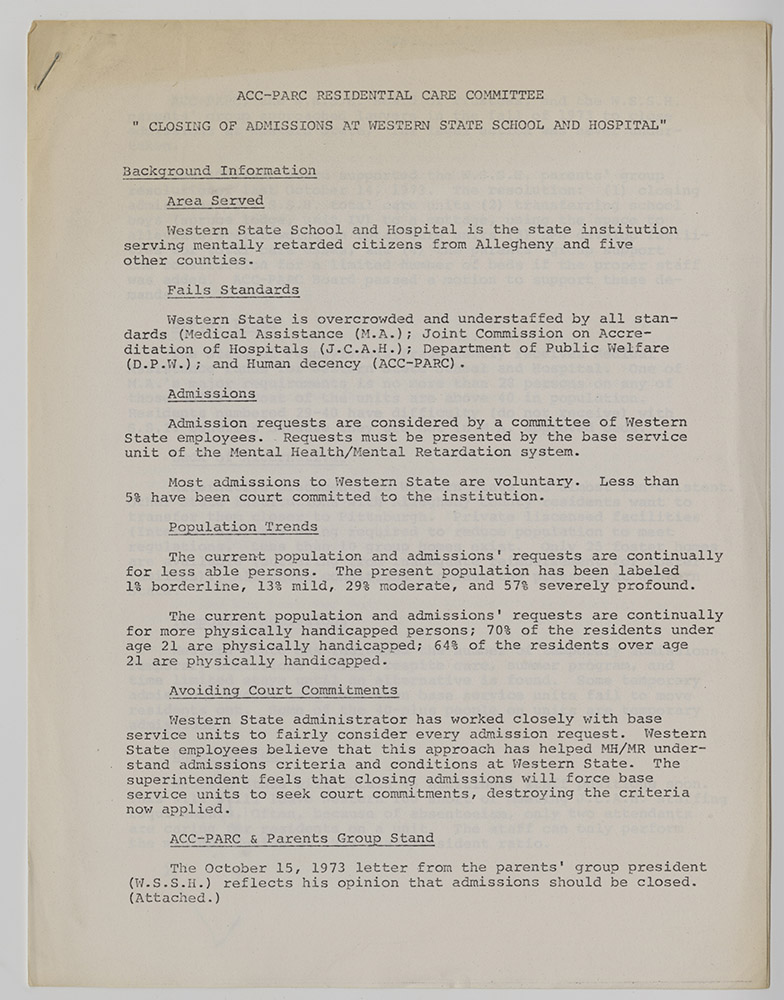
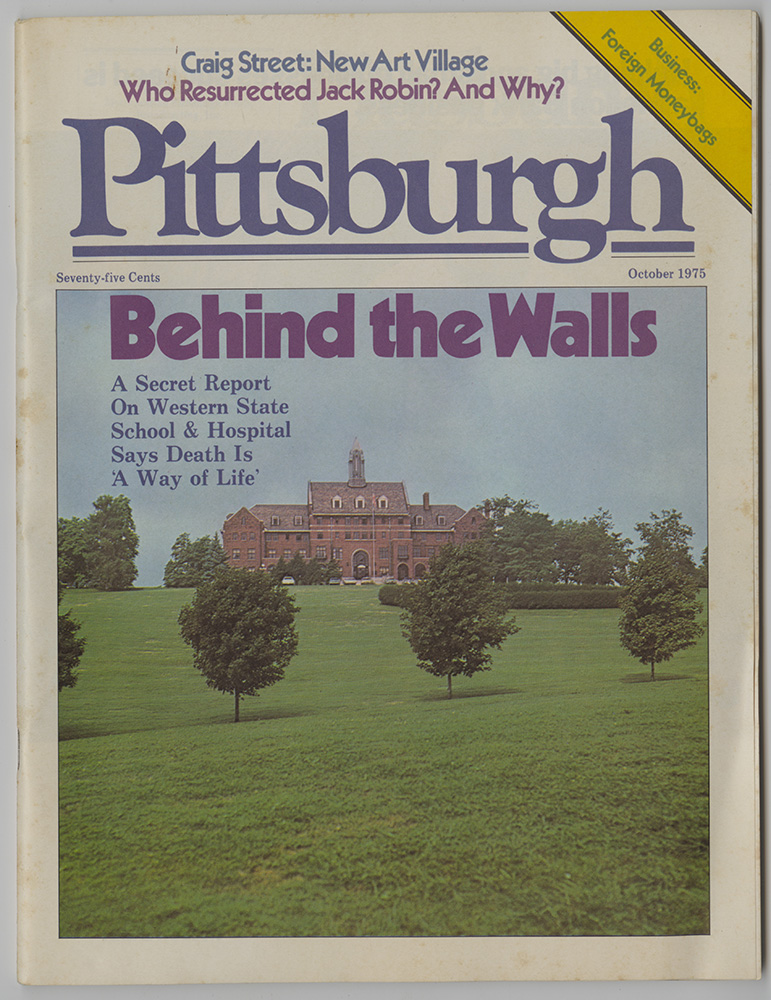
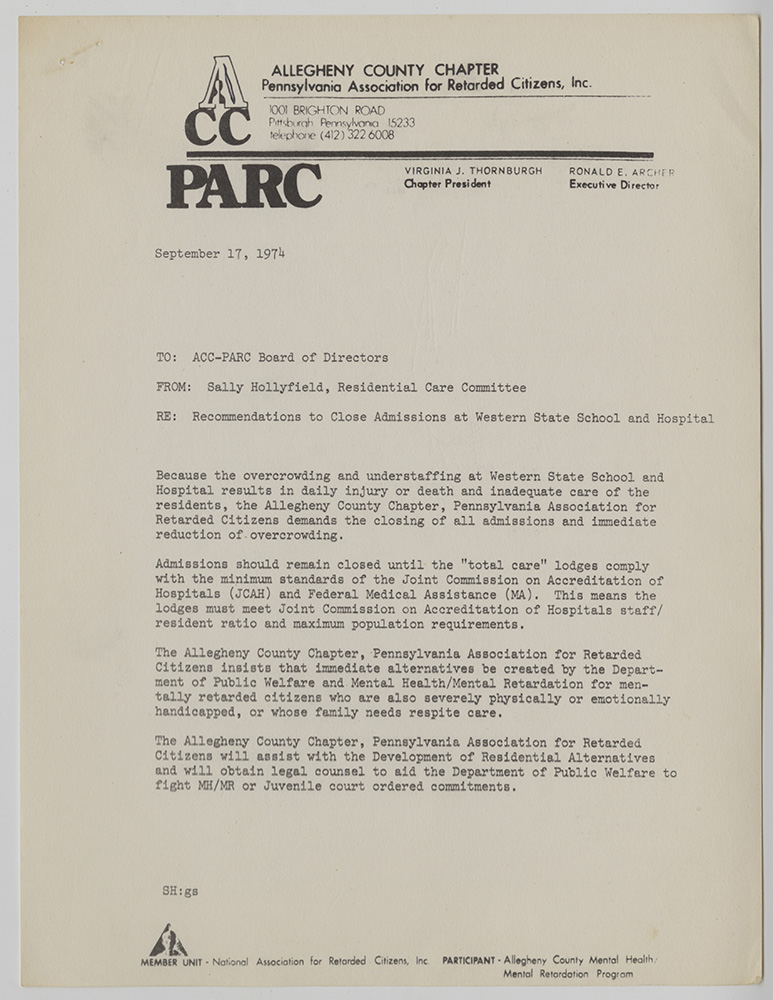
With their thoroughly-recorded observations in hand, ACC-PARC members undertook a campaign to expose the distressing inadequacies at residential care facilities in the region. At the core of their strategy was engaging key change agents in conversation such as local government legislators, the Pennsylvania Department of Public Welfare (today known as the Department of Human Services), and members of the local media. In clearly and consistently articulating the deplorable living conditions they discovered, ACC-PARC members worked towards affecting legislative change that would either institute reform in resident care and facility staffing or terminate inadequate care facilities.
In the case of WSSH, the ACC-PARC worked with local media outlets in order to raise awareness concerning the recent deaths of WSSH residents. ACC-PARC also advocated strongly along with local elected officials for the release of reports by the state Department of Public Welfare that formally and critically assessed WSSH’s living conditions and quality of care. These reports were released as a result of their efforts in late October 1975. The advocacy efforts of the visitation team also led to the emergency appropriation of funds to the WSSH and other state-run institutions that same year. While continuing to lobby the state’s Department of Public Welfare to address their concerns, ACC-APRC also tenaciously engaged in legal battles in order to stymie any court attempts to admit new residents to the already overcrowded institution.
Sadly, concerns about the quality of life of those people residing at WSSH persisted. While continuing to witness to and report the rights violations at the WSSH and other local institutions, ACC-PARC members expanded their advocacy efforts in order to more strongly emphasize the right of people with intellectual disabilities to live and thrive in a community-based living environment. The ACC-PARC pushed for real reform by engaging state employees, partner advocates, and the general public in conversations about the benefits of community living arrangements. The records ACC-PARC generated while engaged in these activities include informative handouts, newspaper articles, compiled research, and letters to state employees and elected officials. The original records in this collection are open for research at the History Center’s Detre Library & Archives.
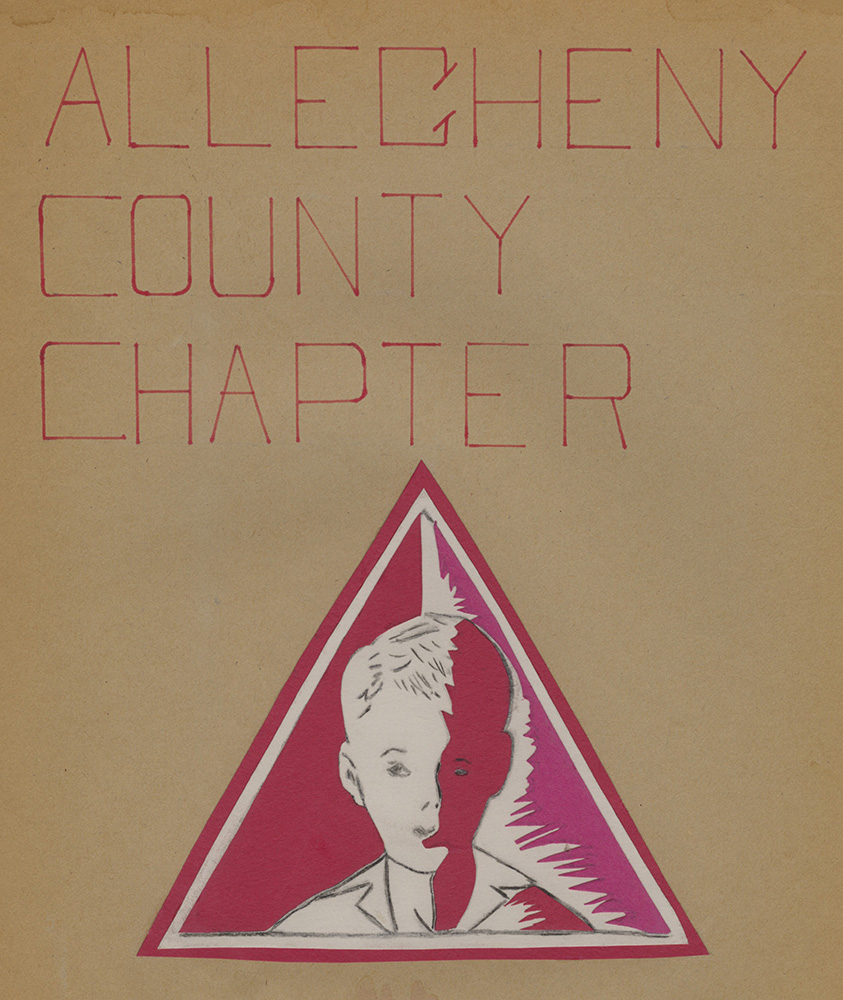
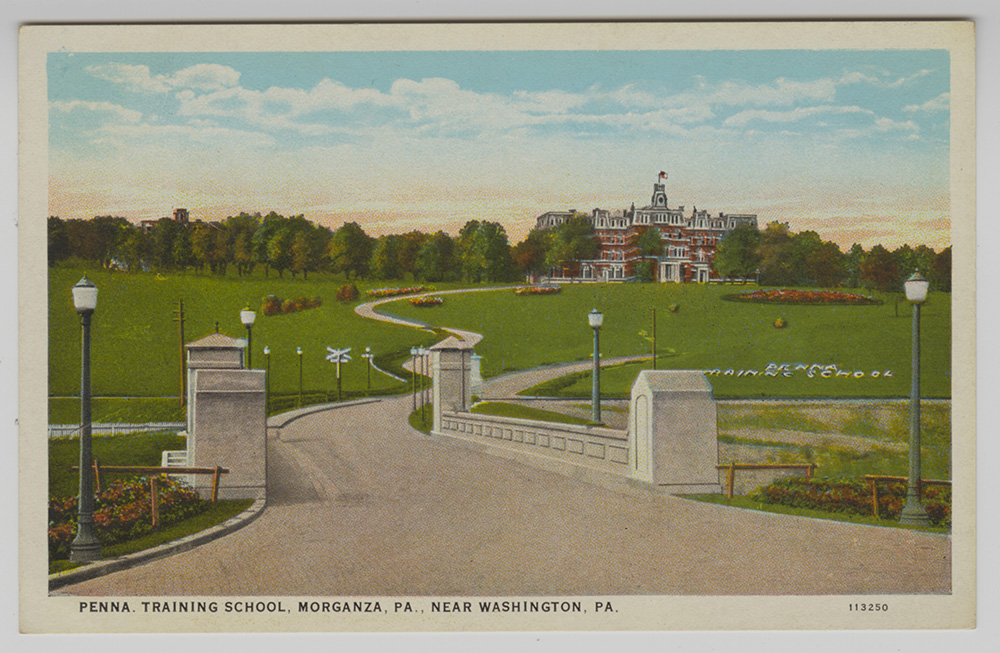
More Information
Those interested in further exploring the history of the local Disability Advocacy Movement are encouraged to visit the website, From Wrongs to Rights. Sponsored by ACHIEVA and the United Way of Allegheny County, this online project features over 800 pages of digitized primary documents from this collection. In addition, those interested in more actively engaging with local disability history are encouraged to contact the newly-established Western Pennsylvania Disability History & Action Consortium (email), whose mission is to “educate the public about disability history in order to achieve equal opportunity and full participation in all aspects of community life, as well as to promote humane policies and laws.” Founding members of the Consortium are ACHIEVA, Community Living and Support Services (CLASS), Institute on Disabilities at Temple University, National Alliance on Mental Illness (NAMI), Pennsylvania History Coalition Honoring People with Disability, Polk Center, Senator John Heinz History Center, Tri-County Patriots for Independent Living, and United Way of Southwestern Pennsylvania.
Sierra Green is an archivist with the Detre Library & Archives at the Heinz History Center.